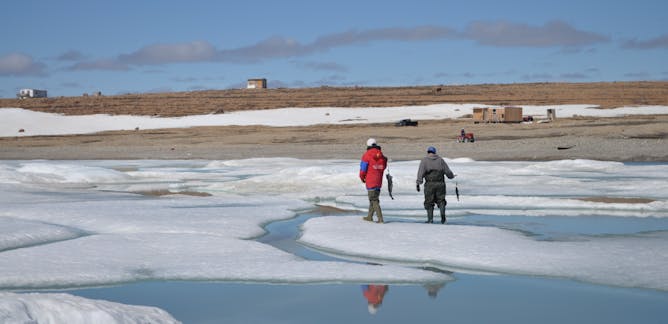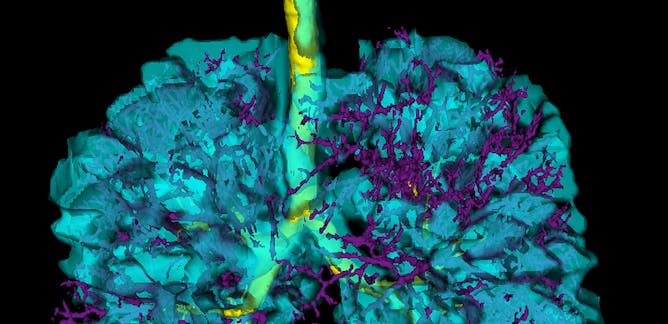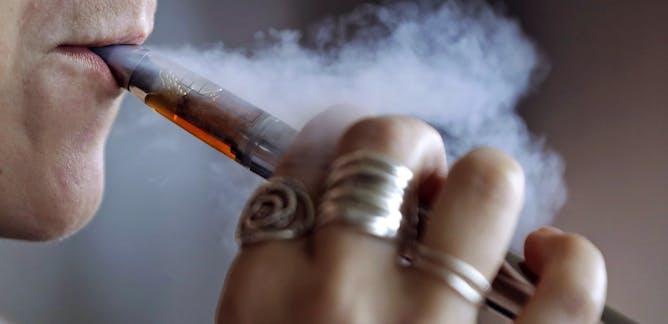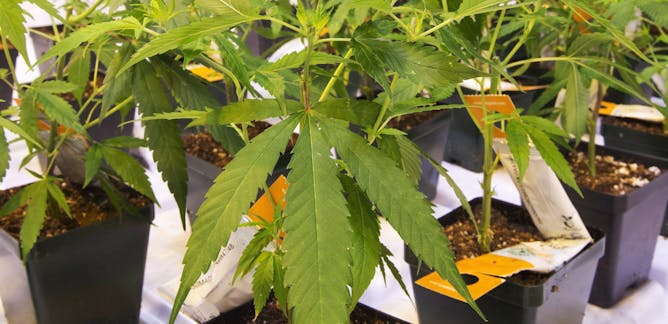|
|
|
2019 Reflections from the Health Desk
|
|
It’s remarkable how fast another year rolls around on the health desk of The Conversation Canada. This is my third and final Year in Review newsletter, as I move on in early 2020 to pursue new creative projects. I would like to express my gratitude to each of the researchers I have worked with since our launch in June 2017. It’s been a delight to collaborate on stories that tackle the pressing health challenges of our time.
At the system level, health inequities between Indigenous Peoples and non-Indigenous Canadians remain an urgent challenge. In Inuit Nunangat, life expectancy is an average of 10 years less than that of the general Canadian population and cancer is one leading cause of this disparity. It was exciting then, to publish a hopeful story this year, about the potential of shared decision-making in cancer care for respecting and promoting Inuit ways within mainstream health-care systems.
This year has also seen a dramatic rise in diagnosis of vaping-related illnesses. We’ve responded with evidence-based calls for greater regulation of vaping devices, compelling testimony from an imaging scientist who sees the deadly damage inside people’s lungs, a news report on the first case of ‘popcorn lung’ in a Canadian teen and hope that the crackdown on vaping products by the government of British Columbia may offer a roadmap for the rest of the world.
In mental health, groundbreaking research into psychedelics continues to shift the landscape of treatment — from trials of MDMA-assisted psychotherapy for PTSD, to the use of ketamine in treating depression. Cannabis is also showing potential for treating PTSD. And dance therapy too is proving effective for depression, improving memory and neuroplasticity in older adults and executive function in those with Parkinson’s disease.
Finally, a few pertinent stories for the holiday break. DNA tests make fun gifts … so long as you don’t take their health claims too seriously. It’s actually OK if you eat all the brie (and the cheddar and cranberry dip) … because cheese can help control your blood sugar. And if your lover gets mad at you for eating all the aforementioned cheese … well, we have a simple question that could transform your romantic relationship.
Wishing you a restful break!
|
Heather Walmsley
Health + Medicine Editor
|

|
|
The Year in Health + Medicine
|

Janet Jull, Queen's University, Ontario; Inuit Medical Interpreter Team
A 'shared decision-making' model enables collaboration with Indigenous communities within Canada's health-care system - to respond to TRC Calls to Action and address rising cancer rates.
| |

Elliott M. Reichardt, University of Calgary; Juliet R. Guichon, University of Calgary
Vaping devices were designed as a clean way of delivering nicotine, to help people stop smoking tobacco. Now, with gummy bear flavours and celebrity endorsements, they are a serious public health problem.
|

Grace Parraga, Western University
Vaping devices cause deadly lung toxicity. Their marketing to children must be banned.
| |

Karen Bosma, Western University; Simon Landman, Western University
As vaping increases among youth, so do the life-threatening lung injuries that accompany it. 'Popcorn lung' is the latest.
|

Christopher Labos, McGill University
As new vaping-related lung diseases continue to be identified, jurisdictions around the world might want to take a look at new vaping regulations in British Columbia, Canada.
| |

Anne Wagner, Ryerson University
MDMA is better known as the party psychedelic Ecstasy or Molly. Used clinically, together with psychotherapy, it reduces symptoms of post-traumatic stress disorder, and shows promise with couples.
|

Brett Melanson, University of Guelph
Research shows that ketamine can produce long-term reductions in symptoms of treatment-resistant depression.
| |

Stephanie Lake, University of British Columbia; M-J Milloy, University of British Columbia
Cannabis use is common among trauma survivors, and may improve some of the symptoms of those with PTSD.
|

Adrianna Mendrek, Bishop's University
Dance therapy is effective in treating depression, improving memory and neuroplasticity in older adults and improving executive function in those with Parkinson's disease.
| |

Michael Mackley, Dalhousie University
DNA testing kits will be a popular gift this holiday season. Before mailing off your saliva, it’s important to understand what these kits can and cannot tell us.
|

Catherine Chan, University of Alberta
A recent research study found that cheese reduced insulin resistance in prediabetic rat models.
| |

Joanne Wood, University of Waterloo; Kassandra Cortes, Wilfrid Laurier University
Research shows that asking an insecure partner about their day can increase their relationship satisfaction.
|
|
|
Today's Featured Articles
|

Candy canes were once white sticks of sugar. Now they’re striped and come in a variety of flavours, including pickle.
(Shutterstock)
Veronica Ann Hislop, Ryerson University; Dérick Rousseau, Ryerson University
Candy canes have an uncertain history from their flavour to their stripes. One thing is certain though: they make your mouth feel cold.
|

Individuals who upload their DNA test results to databases may not have much control over how it’s used.
(Shutterstock)
Julia Creet, York University, Canada
Can the new owner of GEDmatch ,a genealogy database preserve its original purpose while allowing a seamless service to law enforcement?
|

Protests have engulfed Assam since the National Register of Citizens was published in August 2019. They have intensified since the Citizenship Amendment Act was passed by the parliament. Central security forces, pictured here, have been sent in to repress the spontaneous protests by different citizens groups.
(Arunabh Saikia)
Sara Shneiderman, University of British Columbia; Sahana Ghosh, Brown University
India has been working to expel or repress Muslim minorities. Nearly two million residents of India’s eastern state of Assam are at risk of losing citizenship.
|

A harmful algal bloom in the western basin of Lake Erie in August 2017.
(NOAA/Aerial Associates Photography, Inc. by Zachary Haslick/flickr)
Robert Michael Lee McKay, University of Windsor; Joel Edward Gagnon, University of Windsor; John Hartig, University of Windsor; Ken G. Drouillard, University of Windsor; Michael Siu, University of Windsor
The Great Lakes contain reservoirs of legacy contaminants, mostly in their sediments, that are vulnerable to resuspension.
|
| |
| |
| |
| |
| |
| |
|
|
|
|
|
|
|